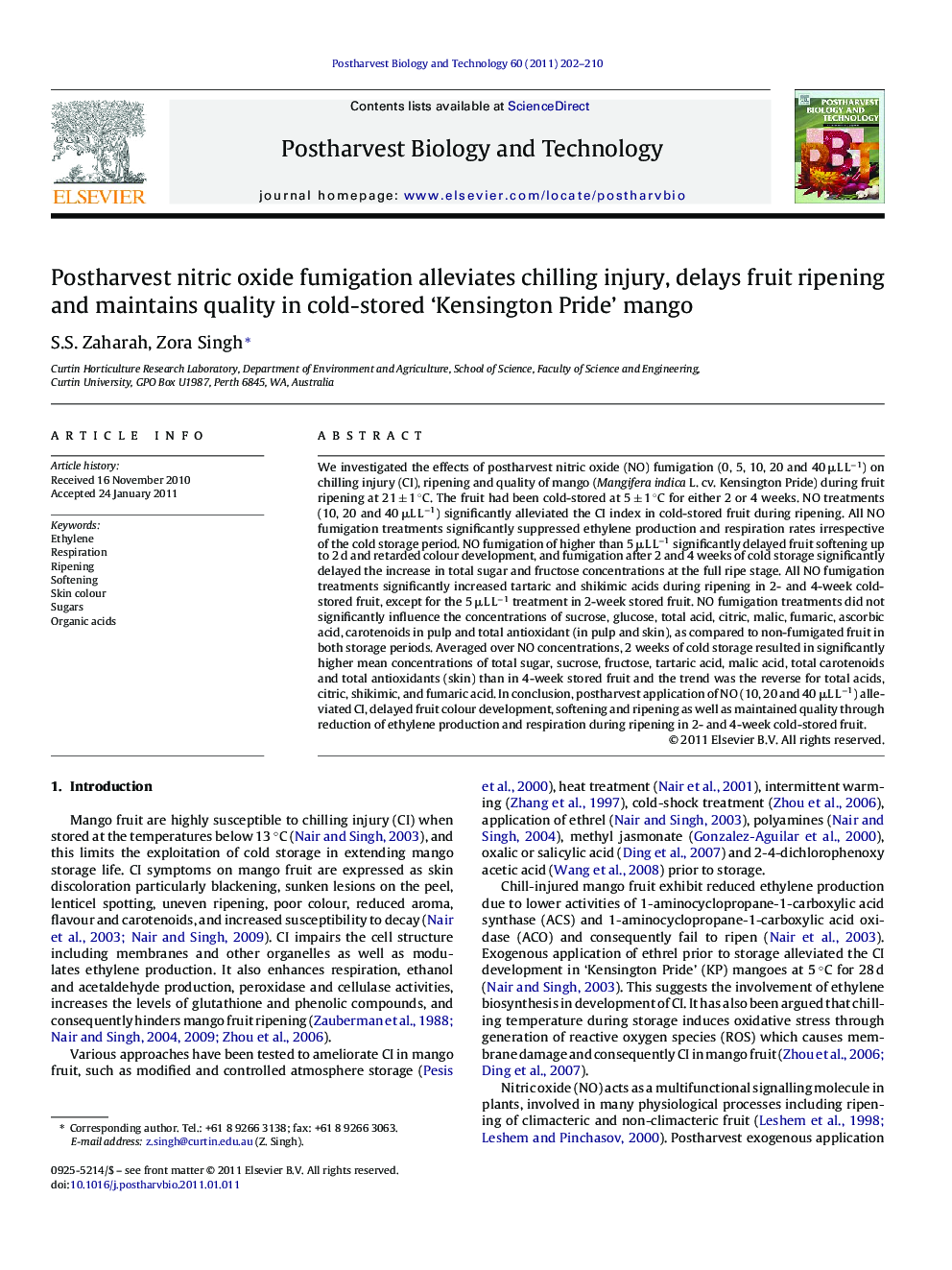| Article ID | Journal | Published Year | Pages | File Type |
|---|---|---|---|---|
| 4518773 | Postharvest Biology and Technology | 2011 | 9 Pages |
We investigated the effects of postharvest nitric oxide (NO) fumigation (0, 5, 10, 20 and 40 μL L−1) on chilling injury (CI), ripening and quality of mango (Mangifera indica L. cv. Kensington Pride) during fruit ripening at 21 ± 1 °C. The fruit had been cold-stored at 5 ± 1 °C for either 2 or 4 weeks. NO treatments (10, 20 and 40 μL L−1) significantly alleviated the CI index in cold-stored fruit during ripening. All NO fumigation treatments significantly suppressed ethylene production and respiration rates irrespective of the cold storage period. NO fumigation of higher than 5 μL L−1 significantly delayed fruit softening up to 2 d and retarded colour development, and fumigation after 2 and 4 weeks of cold storage significantly delayed the increase in total sugar and fructose concentrations at the full ripe stage. All NO fumigation treatments significantly increased tartaric and shikimic acids during ripening in 2- and 4-week cold-stored fruit, except for the 5 μL L−1 treatment in 2-week stored fruit. NO fumigation treatments did not significantly influence the concentrations of sucrose, glucose, total acid, citric, malic, fumaric, ascorbic acid, carotenoids in pulp and total antioxidant (in pulp and skin), as compared to non-fumigated fruit in both storage periods. Averaged over NO concentrations, 2 weeks of cold storage resulted in significantly higher mean concentrations of total sugar, sucrose, fructose, tartaric acid, malic acid, total carotenoids and total antioxidants (skin) than in 4-week stored fruit and the trend was the reverse for total acids, citric, shikimic, and fumaric acid. In conclusion, postharvest application of NO (10, 20 and 40 μL L−1) alleviated CI, delayed fruit colour development, softening and ripening as well as maintained quality through reduction of ethylene production and respiration during ripening in 2- and 4-week cold-stored fruit.
Research highlights► Postharvest application of NO reduced the CI index possibly due to reduced water loss and/or down regulation of generation of ROS, consequently reducing oxidative stress. ► NO fumigation delayed fruit softening and retarded colour development in 2- and 4-week cold stored fruit may be due to suppression of ethylene production. ► NO fumigation delay accumulation of total sugars and fructose in ripe fruit following 2- and 4-week cold storage suggesting its involvement in sugar metabolism.
